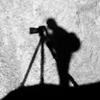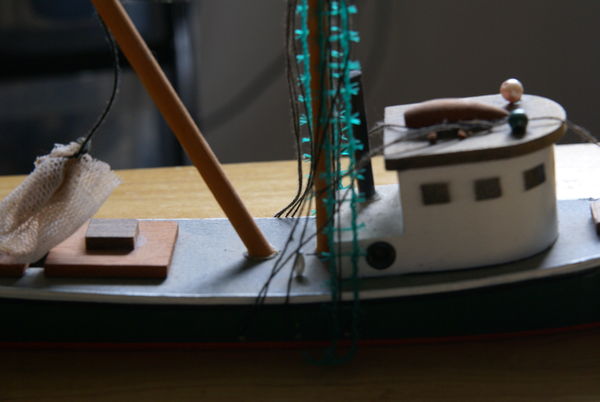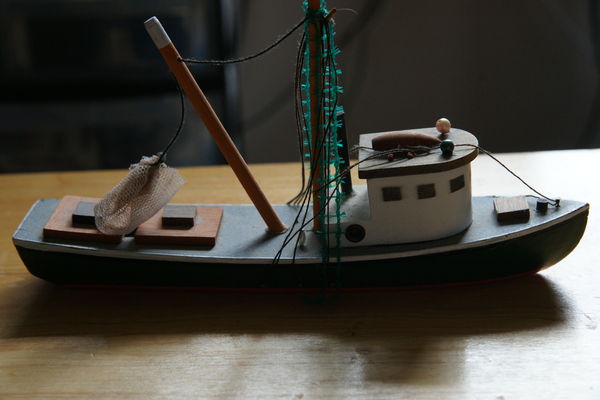Sensors???
Jun 8, 2014 12:04:35 #
What does a sensor do for a photo?
A small sensor does what?
A larger sensor does what?
Is the picture created larger or smaller, I do not understand what difference a camera sensor (large or small), makes to the photo.
Please, Could someone take the same photo, one with a small sensor then take the same photo with the larger sensor and show me what the difference between the two.
Thanks in advance. :?:
A small sensor does what?
A larger sensor does what?
Is the picture created larger or smaller, I do not understand what difference a camera sensor (large or small), makes to the photo.
Please, Could someone take the same photo, one with a small sensor then take the same photo with the larger sensor and show me what the difference between the two.
Thanks in advance. :?:
Jun 8, 2014 13:08:30 #
A. J. wrote:
What does a sensor do for a photo? Please, Could someone take the same photo, one with a small sensor then take the same photo with the larger sensor and.....Thanks in advance. :?:
in the interest pf preserving your sanity:
i suggest you do a search here in the forum, read the couple hundred pages devoted to this question and then come back and rephrase your question.
Jun 8, 2014 13:17:09 #
If the sensors are proportionately the same megapixel rating and the lenses are the same focal length,there should be no difference in quality. The image size should be the same but, because the cropped sensor is smaller, the subject will fill more of the frame. I'll probably get some argument over that comment but that's the way I see it. There's an old formula (IFGA) that translates the image size is to the focal length as the image size on the ground glass is to the altitude (or distance to the subject). We used to use it to figure out how large an object was in aerial photo work. It doesn't matter what size the "film" is if all other factors are the same.
A full frame sensor (DX) is the same size as a traditional 35mm frame, about 1" X 1.5". Cropped sensors (APS-C) vary in size but, are typically about 50% smaller. The result is that the image fills approximately 50% more of the frame. If you measured the image size of a contact print made from each camera, they should be exactly the same.
Hope that explains it.
A full frame sensor (DX) is the same size as a traditional 35mm frame, about 1" X 1.5". Cropped sensors (APS-C) vary in size but, are typically about 50% smaller. The result is that the image fills approximately 50% more of the frame. If you measured the image size of a contact print made from each camera, they should be exactly the same.
Hope that explains it.
Jun 8, 2014 13:32:16 #
oldtigger wrote:
in the interest pf preserving your sanity:
i suggest you do a search here in the forum, read the couple hundred pages devoted to this question and then come back and rephrase your question.
i suggest you do a search here in the forum, read the couple hundred pages devoted to this question and then come back and rephrase your question.
Thank you for your interest. :)
Jun 8, 2014 13:43:06 #
nicksr1125 wrote:
If the sensors are proportionately the same megapi... (show quote)
I understand more than I did before, let me see if I got this right, in a full frame camera the sensor is 50% larger so the subject does not fill the fame; in a smaller or cropped sensor the subject fills more of the frame.
Thank you, it may be to my advantage to get a camera such as the Canon 6D full frame with interchangeable lenses as to a Canon Power Shot SX 50 bridge camera that has a smaller sensor.
Thanks again for the information.
;)
Jun 8, 2014 14:06:40 #
In general, a small senor doesn't have same in crispness or clarity. Look at this way. The sensors have Megapixels that absorb the light when exposed. So let use say you have two cameras, both 10 Megapixel. One has a large sensor, like a DX, the other like the SX. The sensor in one has ten times more surface area as the other. Now, which one do you think will be more sensitive to light. The larger one can sense more light in lower light conditions and can also sense more variations in light to a higher degree, that's the pro's. The con's. A camera like the SX50HS is properly half the weight because the lens are simpler, and the total mass is smaller. In the right conditions both cameras can have some very good results.
You have to decide how much is enough for the pictures you wish take and where. Inside sports, the SX50 will most likely not give you good results. But outside in day light you will be very happy with it.
I own and SX50 and have found that using the flash is almost mandatory inside. Outside in the garden, my wife loves it because of the 50X zoom. I prefer my DLSR 95% of the time.
You have to decide how much is enough for the pictures you wish take and where. Inside sports, the SX50 will most likely not give you good results. But outside in day light you will be very happy with it.
I own and SX50 and have found that using the flash is almost mandatory inside. Outside in the garden, my wife loves it because of the 50X zoom. I prefer my DLSR 95% of the time.
Jun 8, 2014 14:17:16 #
Jun 8, 2014 15:23:12 #
Bill Houghton wrote:
In general, a small senor doesn't have same in cri... (show quote)
Good not overly technical explanation and advice.
Jun 8, 2014 15:28:46 #
A. J. wrote:
larger or smaller, I do not understand :?:
larger or smaller, I do not understand :?:
A.J., I don't know anything about it either.
But anytime I'm out with my camera around my neck, the girls always glance down about where my camera is hanging and whisper,"bigger is definately better".
Just saying. :lol
SS
Jun 8, 2014 16:05:43 #
A. J. wrote:
Please, Could someone take the same photo, one with a small sensor then take the same photo with the larger sensor and show me what the difference between the two.
Thanks in advance. :?:
Thanks in advance. :?:
The top picture was taken with my Sony A100 with a Tamron 28-75/2.8 zoom at 75mm. The bottom was taken with my Sony A850 & the same lens. The cameras were mounted on a tripod at the same distance. The result was not what I expected. The A100 photo disproves the idea (at least for the A100/A850) that the image size should be the same, only cropped. Without further experimentation, I'll have to eat part of my words. This should give you a little better idea of the difference between a cropped sensor (APS-C) & a full frame sensor (FX).
Jun 8, 2014 16:34:09 #
A. J. wrote:
What does a sensor do for a photo?
A small sensor does what?
A larger sensor does what?
Is the picture created larger or smaller, I do not understand what difference a camera sensor (large or small), makes to the photo.
Please, Could someone take the same photo, one with a small sensor then take the same photo with the larger sensor and show me what the difference between the two.
Thanks in advance. :?:
A small sensor does what?
A larger sensor does what?
Is the picture created larger or smaller, I do not understand what difference a camera sensor (large or small), makes to the photo.
Please, Could someone take the same photo, one with a small sensor then take the same photo with the larger sensor and show me what the difference between the two.
Thanks in advance. :?:
Basically, all current interchangeable lens cameras are capable of giving you terrific results. Though your question is sure to start a war between the advocates of different formats, there is way more to the answer than simple sensor size. Image quality is a complex issue, and most of the current available ILC's (DSLRs and mirrorless) outperform us, their owners, and are limited only by the same.
Smaller sensors are engineered to produce quality images at the size they are. Their main limitations have to do with less than full frame performance in tracking fast moving things with long lenses, and shooting in very dark places without flash, though those limitations are shifting with each new iteration. In return for these tradeoffs, small sensor ILCs are smaller, lighter, cheaper, and have smaller lenses. They also tend to have a lot of gadgetry that some people find fascinating and others find unnecessary. There are also differences among camera makers and camera models in all types.
Here is a link to a serious amateur photographer who shoots both m43 and full frame and likes them both, and he has done the kind of test you were asking for. http://mkallstrom.wordpress.com/2013/11/25/m43-ff-comparison-olympus-e-m5-vs-eos-6d/
I use m43 (Olympus EM1), and I am pleased with it. I was having problems dealing with the weight of the larger DSLR and its hefty lenses, and m43 hits the perfect spot for me with good quality and easy handling.
Jun 8, 2014 16:42:31 #
nicksr1125 wrote:
......... The A100 photo disproves the idea (at least for the A100/A850) that the image size should be the same, only cropped. Without further experimentation, I'll have to eat part of my words. ...............
what makes you think you were wrong?
Jun 8, 2014 16:45:38 #
oldtigger wrote:
what makes you think you were wrong?
The fact that the image size is different. That would indicate a difference in magnification. The only difference should be how the image is cropped unless I'm missing something.
Jun 8, 2014 17:07:40 #
nicksr1125 wrote:
The fact that the image size is different. That would indicate a difference in magnification. The only difference should be how the image is cropped unless I'm missing something.
Turn your camera on and open lens up all the way.
Remove lens and point it at a light bulb.
Hold a piece of typing paper behind the lens and move it back an forth until you get a focused image at about an inch away.
Now think about it, will changing the size of the paper have any effect on the image size?
Jun 8, 2014 17:16:43 #
If you want to reply, then register here. Registration is free and your account is created instantly, so you can post right away.









